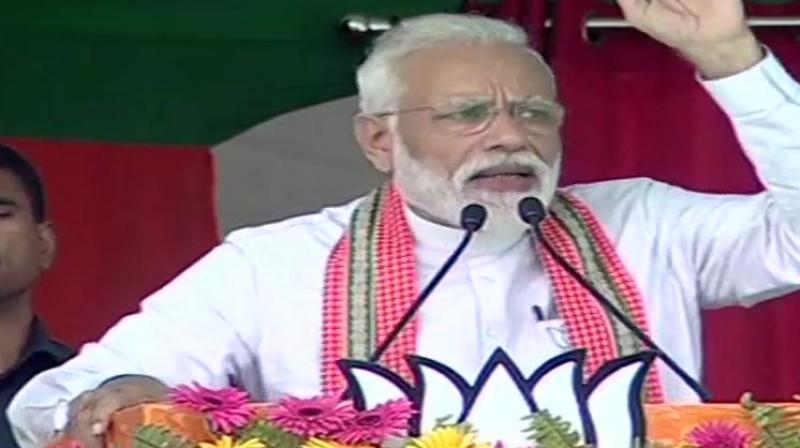Regional parties: Hardly an existential problem!

Having won 303 seats, the BJP has a majority entirely of its own and it may seem that carrying a horde of regional parties in tow was not necessary. The BJP is an ideology-based party with a strong leadership and there is hardly any chance of its MPs abandoning the party midway as they did with Janata Party in 1980. Also, the BJP allies in NDA have no handle to bargain for their demands. On the other hand, Congress seems to be a lost cause in most of the states and the regional constituents in the UPA too are uncomfortable since they stand to gain nothing by continuing to keep Congress’ company. So, it seems that either way regional parties seem to have become less important with hardly any clout at the national level.
Going a little deeper into the character of the regional parties will reveal that it is not so. The diverse nature of the Indian federation gives rise to a variety of identities that are not always in consonance with a perceived ‘national ethos’. The Sikhs have their Shiromani Akali Dal. Shiv Sena is born of a sense of injustice to the ‘sons of the soil’. Tamil Nadu has a very strong sense of an autonomous cultural identity and its people seem to despise the perceived hegemony of the Hindi North. The process of integration with the Indian Nation is still continuing in the North-East and they have too many tribal groups for a common identity to stabilise. Central India is the least developed part of the country and local leaders there seem to be able to communicate with the local people better.
Biju Janata Dal, Trinamul Congress, Samajwadi Party, RJD and others are all breakaway factions of either the Congress or the Janata Party. Though their breaking away can, to an extent, be attributed to personal ambitions and a lack of trust, they seem to have found their respective niches where the people seem to trust them with protecting and promoting their interests.
Considering the obstacles of language, customs and vulnerable sensitivities, any national party will find it more convenient to communicate with the people through the medium of such parties. The alternative is to use superficial ploys such as wearing local headgear, using some locally popular endearment, etc, which may not work over a long period.
A large section of the Indian people is still labouring under feudal equations of human relationships and it is possible to please these people with gestures of magnanimity, even of granting some dispensation in the fashion of a royal personage giving away some largesse. But this too cannot work every time. Arousing national sentiment also will not work forever, even with our predominantly emotional people. The regional parties, with their access to the hearts of the regional people, will always be better communicators in any context.
It also has to be remembered that the emergence of the regional parties is a later phenomenon, brought about by disillusionment with the Centre’s rule. So long as there are grouses rooted in the minds of the people, there will be regional parties to voice them. And no national party can ever satisfy all regions at the same time; especially not the BJP with its Hindutva plank.
This brings us to the most pressing issue of the moment. The Internet and the android phone has accorded access to the world with all its wonders and the generation next yearns for power, for prosperity, for modernity and for information as never before.
Even though these aspirations are universally shared, the means to achieve them are not. So long as this regional disparity remains, there will be ground for exploiting it and politics, being the art of the possible, will see the emergence of newer parties.
Regional parties help to restore the balance in regional development, though they may seem to represent disgruntled and opportunistic individuals in the short run.
The writer Hemant Karnik is a columnist and associated with Sampark, an NGO working for UNICEF on increasing Maharashtra MLAs’ contribution towards child issues

